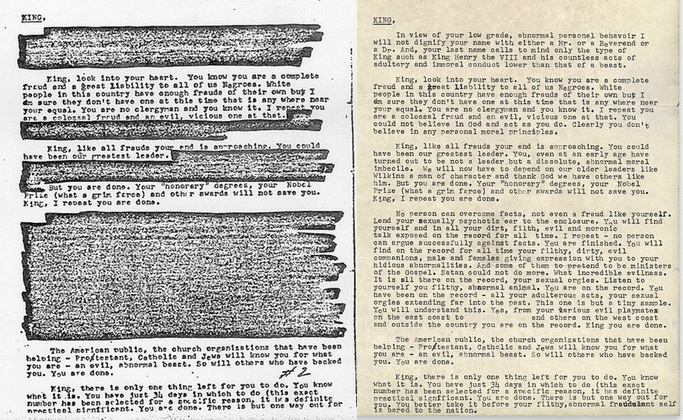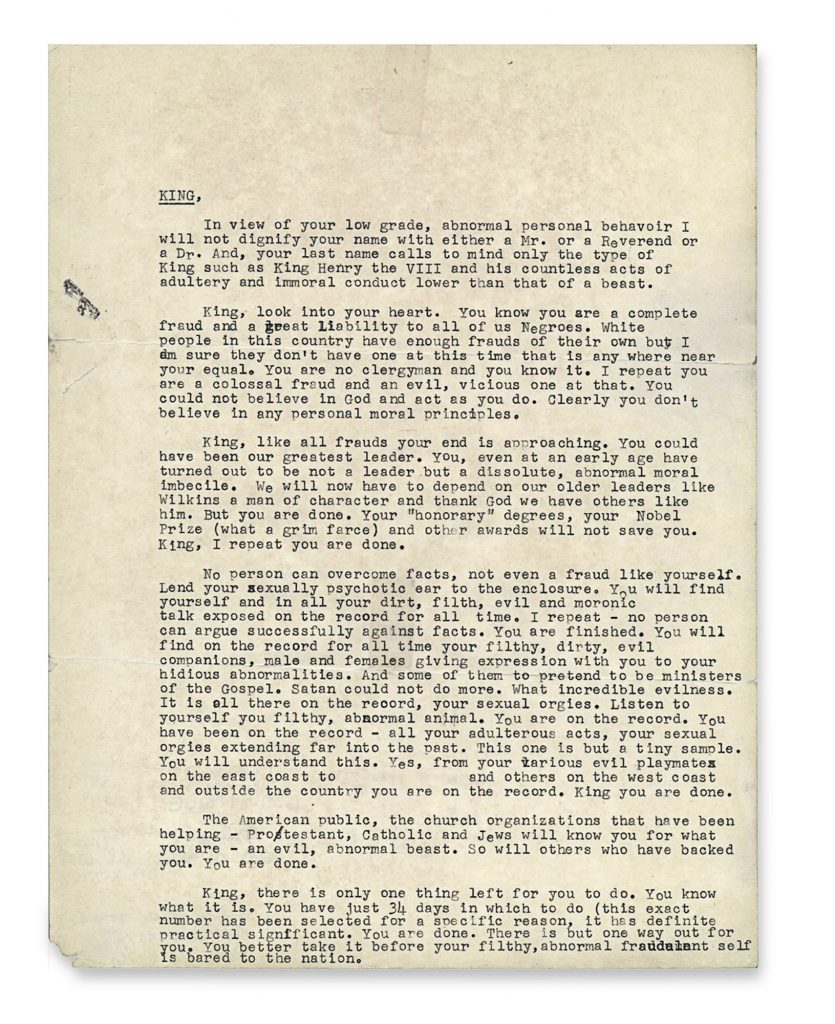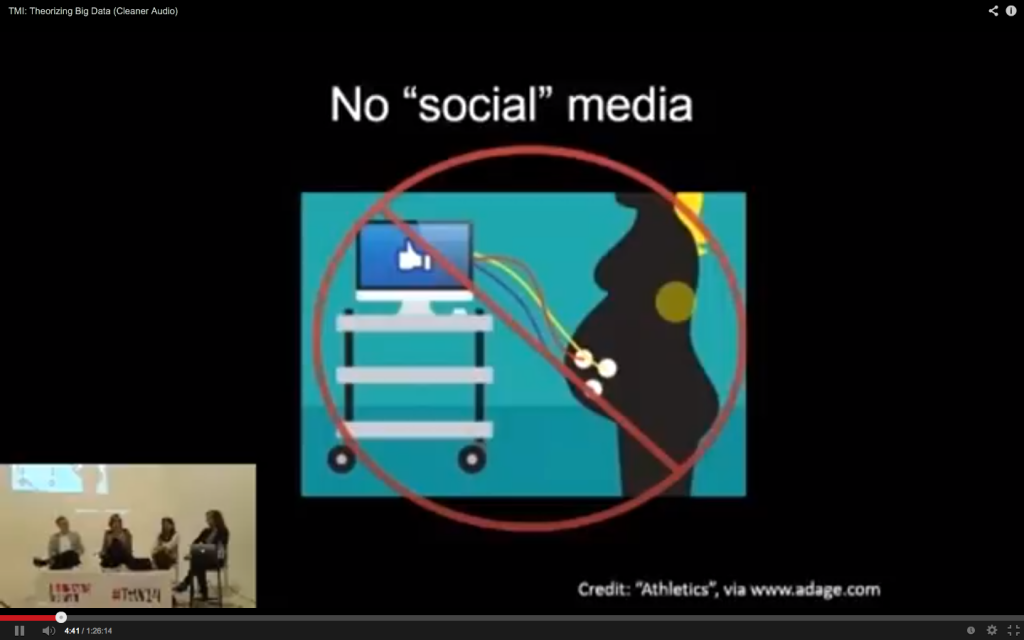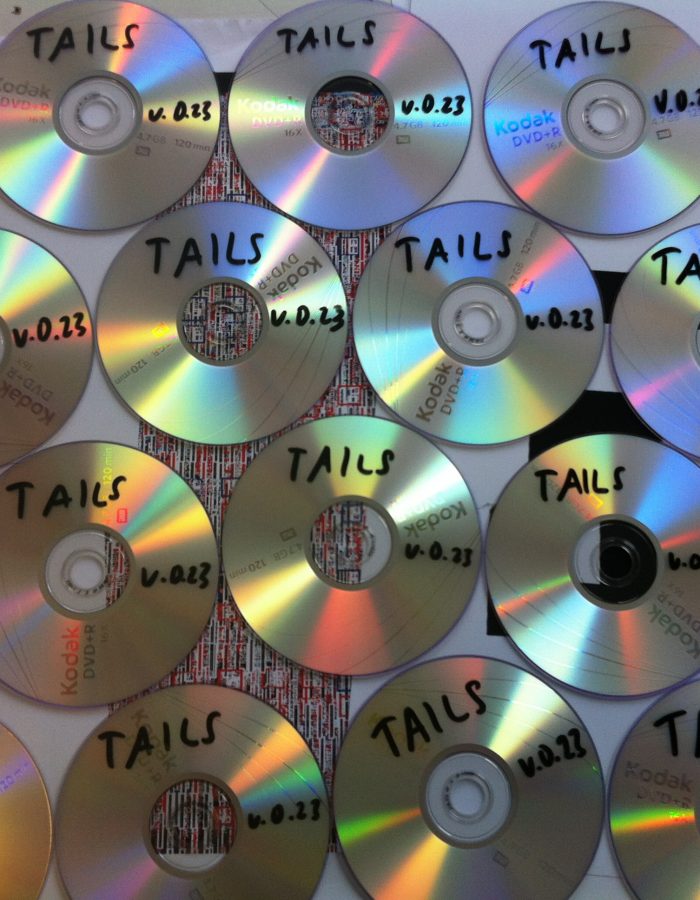This is nasty.
FBI’s “Suicide Letter” to Dr. Martin Luther King, Jr., and the Dangers of Unchecked Surveillance

BoingBoing gives some context:
We’ve known for years that the FBI spied on Martin Luther King’s personal life and sent him an anonymous letter in 1964 threatening to out him for his sexual indiscretions unless he killed himself in 34 days. Now we have an unredacted version of the notorious letter.
As the Electronic Frontier Foundation points out, the practice of spying on the personal lives of activists and blackmailing them in order to disrupt political movements is alive and well — for example, there’s the UK spy agency GCHQ’s Joint Threat Research and Intelligence Group (JTRIG), whose mission (documented in a Snowden leak) is to “destroy, deny, degrade [and] disrupt enemies by discrediting them.”
The implications of these types of strategies in the digital age are chilling. Imagine Facebook chats, porn viewing history, emails, and more made public to discredit a leader who threatens the status quo, or used to blackmail a reluctant target into becoming an FBI informant. These are not far-fetched ideas. They are the reality of what happens when the surveillance state is allowed to grow out of control, and the full King letter, as well as current intelligence community practices illustrate that reality richly.



